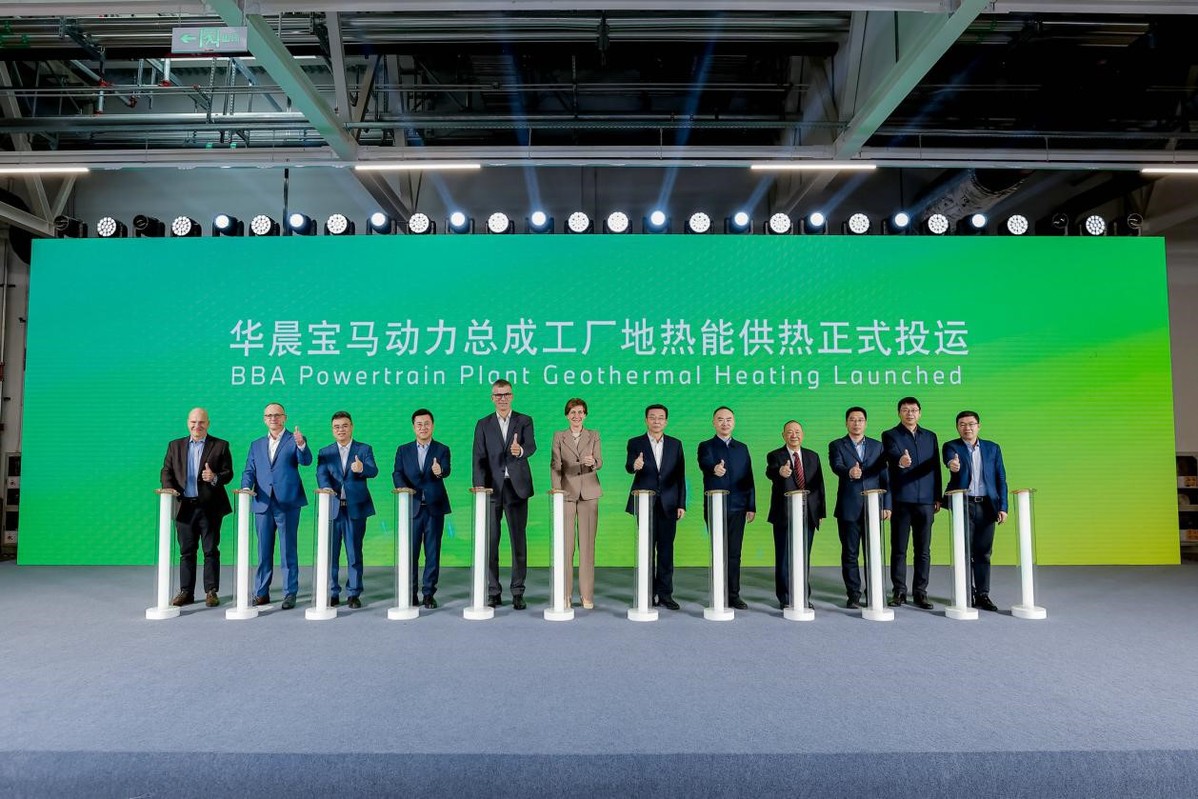BMW taps deep geothermal energy in China


BMW Group has taken another step in its global renewable energy transition with the launch of a geothermal heating project on Friday in Shenyang, Northeast China — a move the German automaker says will help cut emissions at its local plants and boost sustainability in the country's industrial north.
The system will provide 100 percent non-fossil heat supply to BMW Brilliance Automotive's Powertrain Plant and its Sixth-Generation High-Voltage Battery Center, which produces batteries for the upcoming Neue Klasse models.
The project highlights how BMW is using localized innovation to lower its manufacturing carbon footprint and sharpen its competitive edge in China's fast-evolving electric vehicle market.
"With the commissioning of the new geothermal heating project in Shenyang, we, together with our partners from government and industry, are setting an important milestone for a forward-looking energy supply," said Ilka Horstmeier, BMW AG board member for human resources and real estate.
"This project exemplifies our holistic approach that combines responsibility and innovation. We are proud to take a leading role in China and to contribute to global and local resource conservation goals."
Shenyang, a major industrial hub with a long winter heating season, has long depended on fossil fuels for energy. Low-carbon heating has become a crucial challenge for the city's decarbonization efforts.
Supported by the local government, BMW is partnering with China Huaneng Group, Wanjiang New Energy Co, and Shenyang Sino-German Park Development Group to tap the region's geothermal potential.
Using coaxial casing heat exchangers, the project draws heat from rock formations at depths of about 2,900 meters — roughly the height of ten Eiffel Towers stacked vertically — in a fully closed-loop system that "extracts heat without water withdrawal", helping to protect local groundwater and soil.
The setup requires less land, offers higher efficiency and greater operational stability than traditional shallow geothermal systems, and is designed to meet the heating needs of China's colder northern regions.
The installation includes 28 medium-deep geothermal wells covering about 580,000 square meters of heating area.
It's expected to cut carbon emissions by 18,000 tons a year — equivalent to those from a car circling the Earth 3,000 times — and serve as a model for scalable clean heating in northern China's industrial zones.
The project forms part of BMW's broader push to build a diversified renewable energy portfolio.
Beyond geothermal energy, the company is exploring cross-sector wind power cooperation, hydrogen energy commercialization, and expanded use of renewable electricity across its entire supply chain.
By integrating deep geothermal heating into its battery manufacturing hub, BMW says it is taking another step toward reducing product emissions "from the source", as it ramps up production for the Neue Klasse — the next generation of its electric vehicles set to define the brand's future lineup.




































